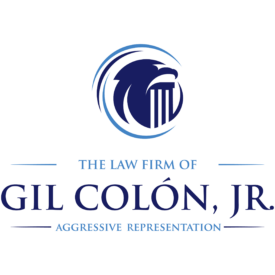Paternity disputes often take an emotional toll on everyone involved—especially the child. Uncertainty about a child’s parentage can disrupt family bonds and create lasting tension. By resolving these issues promptly and respectfully, families can reduce stress, protect the child’s emotional well-being, and begin building a more stable future.
Family ties, expectations, and future plans can put a lot of pressure on new and experienced parents. Resolving these disputes requires empathy, professionalism, a deep understanding of the legal process, and, most importantly, a prioritization of the child’s best interests.
The Legal Framework in Polk County
Florida has established comprehensive laws and procedures for addressing paternity disputes within its family court system. These laws govern how paternity is established, the rights and responsibilities of parents, and the process for resolving disputes related to paternity, custody, and child support.
Paternity disputes frequently involve issues related to child support and custody. Determining financial support and parental rights can be challenging without a legally recognized father. Establishing paternity is essential for ensuring that both parents fulfill their financial obligations and have a legal basis for seeking custody or visitation rights to keep things fair and protect the child’s best interests.
Methods for Establishing Paternity
The first step to addressing paternity disputes is confirming who the unconfirmed parent is. The identity of the mother of the child is typically self-evident, so paternity disputes often focus on the biological fatherhood of the child, their rights, and obligations. In Polk County family courts, several methods are available for establishing paternity.
Voluntarily Establishing Paternity in Florida
One method is voluntary acknowledgment, where both parents sign a legal document affirming the paternity of the child. This form is typically signed at the hospital or a designated office shortly after the child’s birth. It’s important to note that this method is only valid if both parents agree on the child’s paternity.
Using DNA Testing to Prove Paternity
When paternity is disputed, genetic testing may be necessary. Families can pursue testing on their own, and Florida family courts may also elect to order genetic testing to compare genetic markers between the alleged father and the child. These tests are highly accurate and serve as admissible evidence in court proceedings.
When the Court Must Determine Paternity
If paternity remains unresolved or contested, either party can petition the family court to establish paternity. During these proceedings, both parties present evidence and testimony to support their claims regarding paternity.
As noted, courts may order genetic testing if necessary to reach a conclusive determination. Ultimately, a judge issues a court order that legally establishes paternity based on the evidence presented.
Challenges Parents Face in Paternity Cases
Paternity disputes tend to involve parents’ obligations to their children and each other. These disagreements can be incredibly emotionally charged, but parents should do their best to minimize this impact on their children as much as possible. Ideally, paternity disputes are resolved when a child is still very young.
A common challenge in paternity disputes is the denial of paternity by the alleged father. Denial of paternity can occur for various reasons, including doubts about the child’s parentage or disputes over the relationship with the mother.
Suppose a person believes he is not the father of a child but is brought into a parental dispute. In that case, he will need to deny his paternity to avoid being held to any legal or financial obligations to the child ordered by the court. In such cases, genetic testing is often necessary to establish paternity conclusively.
Paternity disputes can have a significant emotional impact on all parties involved, including the child. Uncertainty regarding parentage can strain relationships and create emotional turmoil. Resolving these disputes in a timely and respectful manner is crucial for minimizing the emotional impact on the child and promoting a healthy family dynamic.
How to Resolve Paternity Disputes Effectively
Parents should do their best to resolve conflicts about paternity as soon as possible. Working with a former partner can be challenging, but it is in your child’s best interest to determine who their parent is swiftly and accurately.
Mediation can be an effective strategy for resolving paternity disputes outside of the courtroom. A neutral third party facilitates communication between the parties, helping them reach a mutually acceptable agreement regarding paternity, child support, and custody arrangements. Mediation offers a less adversarial approach and gives both parties a voice in the resolution process.
Collaborative law is another alternative dispute resolution method that can be effective in paternity cases. In collaborative law, both parties and their attorneys work together to reach a mutually beneficial resolution without going to court. This approach promotes open communication and cooperation, ultimately leading to a more amicable resolution of paternity disputes.
Seek Legal Guidance
Addressing paternity disputes in Polk County family courts requires a comprehensive understanding of the legal framework, common challenges, and effective resolution strategies. Whether through voluntary acknowledgment, genetic testing, or court orders, establishing paternity is crucial for determining parental rights and responsibilities.
Seeking legal representation is essential for navigating paternity disputes in family courts. An experienced family law attorney can provide valuable guidance and advocacy throughout the legal process. Whether negotiating a settlement or presenting a case in court, having knowledgeable legal representation can significantly impact the outcome of the dispute.
The Law Firm of Gil Colón, Jr. can help your family address your paternity dispute in Polk County family court. We have decades of experience working for families just like yours. Call us today at 863-534-3777 to schedule a free consultation.






